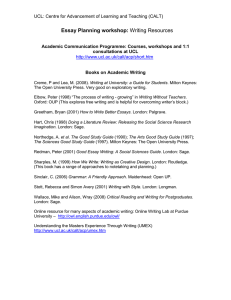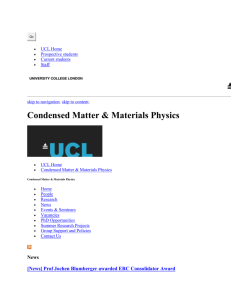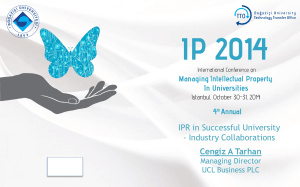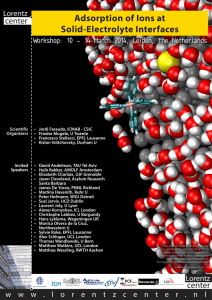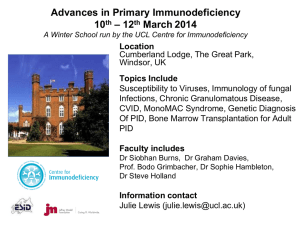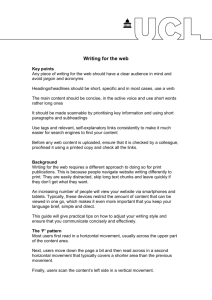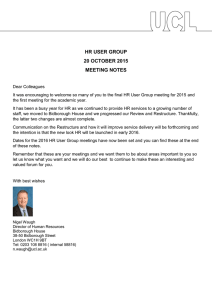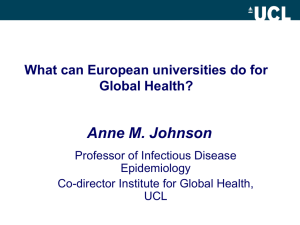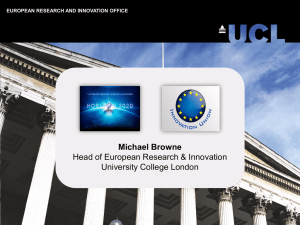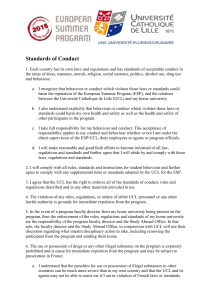Download: guidance on the 2015
advertisement
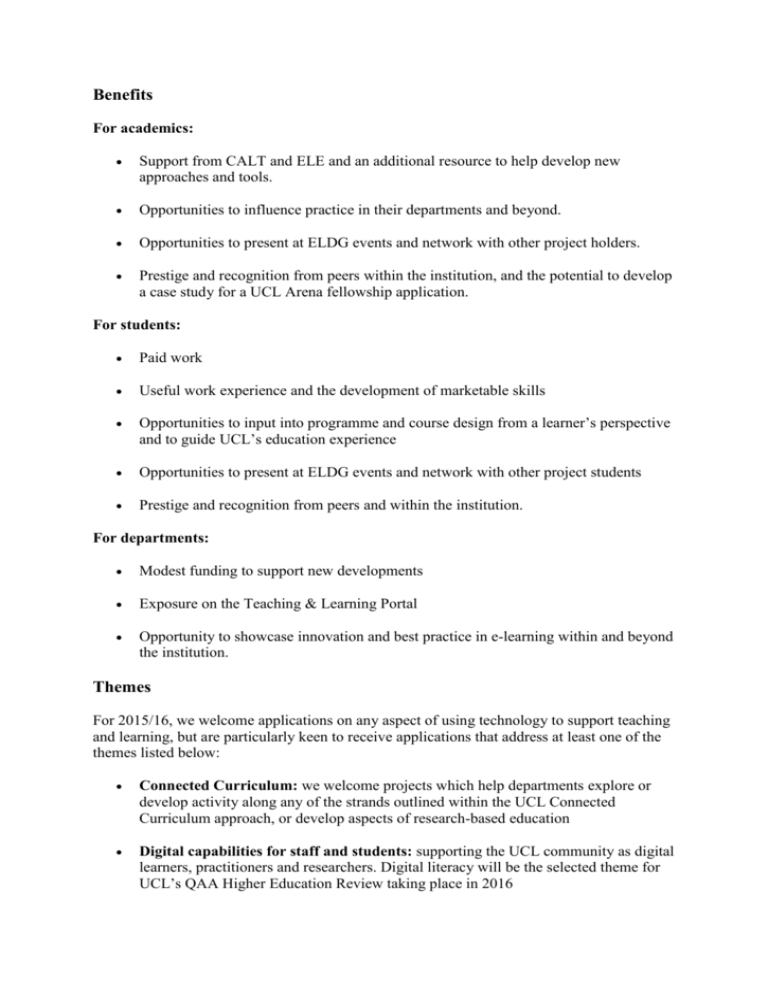
Benefits For academics: Support from CALT and ELE and an additional resource to help develop new approaches and tools. Opportunities to influence practice in their departments and beyond. Opportunities to present at ELDG events and network with other project holders. Prestige and recognition from peers within the institution, and the potential to develop a case study for a UCL Arena fellowship application. For students: Paid work Useful work experience and the development of marketable skills Opportunities to input into programme and course design from a learner’s perspective and to guide UCL’s education experience Opportunities to present at ELDG events and network with other project students Prestige and recognition from peers and within the institution. For departments: Modest funding to support new developments Exposure on the Teaching & Learning Portal Opportunity to showcase innovation and best practice in e-learning within and beyond the institution. Themes For 2015/16, we welcome applications on any aspect of using technology to support teaching and learning, but are particularly keen to receive applications that address at least one of the themes listed below: Connected Curriculum: we welcome projects which help departments explore or develop activity along any of the strands outlined within the UCL Connected Curriculum approach, or develop aspects of research-based education Digital capabilities for staff and students: supporting the UCL community as digital learners, practitioners and researchers. Digital literacy will be the selected theme for UCL’s QAA Higher Education Review taking place in 2016 Digital media and Lecturecast: UCL has invested heavily in digital media systems (BoB, Lynda.com, Lecturecast) which have been heavily used in some areas. We are keen to see more widespread adoption and integration in the curriculum. Revisiting assessment: using technology to broaden the diversity of assessment or reduce the volume of assessment that students undertake. Criteria All applications need to make a strong case for what is novel or developmental about their proposal and how the outcomes will enhance or transform current practice. Projects that involve students in guiding or evaluating project designs and outcomes are encouraged. One of the core goals of the ELDG Scheme is the sharing of practice, and applicants must detail how their project will be shared throughout the twelve-month cycle (August 2015 – July 2016). Scoping and costing of projects ELDG funding can be used for any purpose that would be over and above usual activity. This may include paying students for work they undertake, software licenses, purchasing equipment, external photo/videographers, conference/event fees (especially for students) etc. However note that the project must provide a tangible outcome for any equipment/software purchased; it cannot simply be for the purchase of equipment alone. Staff time would not normally be funded. We recognise that it can be difficult to scope e-learning projects and make realistic estimates of the time required and so we recommend meeting with ELE staff to brainstorm ideas and assess the likely student time and expertise required. The per-hour rate for student work is left to the department’s discretion, but a rate used commonly is spine point 15 on UCL’ s salary scale. As you plan your application we recommend you: Contact your e-learning champion for support for your application Contact ELE (ele@ucl.ac.uk) for an outline discussion about the costs (particularly for student time) for your application. Support and funding To support you in your project you will receive a mentor from ELE, with the chance also to receive support from a CALT faculty-facing teaching fellow. One-half of the funding allocated will be transferred to you following an initial scoping/planning meeting in September/October 2015, during which you will be asked to outline a timescale for your project and arrange a further review meeting once the project is underway. Following the successful completion of this review meeting the remaining one-half of funds will be paid. Dissemination We are keen that as many people as possible are able to learn lessons and get ideas and inspiration from your experience and that these small grants can act as a catalyst for larger projects. We therefore require successful applicants to document progress in a format agreed with your project mentor at the start of the project. We also expect you and your project students to actively participate in scheduled networking and dissemination events throughout the duration of the project. All ELDG grant-holders are required to produce a short (approx. 500 words) reflective blog post for our ELDG blog by the end of September 2016, outlining the aims of the project and how these have been met, any shortcomings and recommendations for anyone wanting to replicate the project. Selected ELDG projects will be featured in the case studies section of the Teaching and Learning Portal. Project winners will also be expected to give a 10 minute presentation about their project, either in the half-way showcase (January 2016) or the final event (June/July 2016) and are invited to submit proposals for UCL’s Teaching and Learning Conference in 2016.

